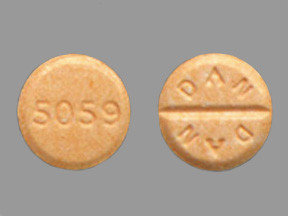PREDNISOLONE - ORAL
PHONETIC PRONUNCIATION: (pred-NISS-oh-lone)
COMMON BRAND NAME(S): Delta-Cortef, Millipred DP
GENERIC NAME(S): prednisolone
Uses
USES: Prednisolone is a man-made form of a natural substance (corticosteroid hormone) made by the adrenal gland. It is used to treat conditions such as arthritis, blood problems, immune system disorders, skin and eye conditions, breathing problems, cancer, and severe allergies. It decreases your immune system's response to various diseases to reduce symptoms such as pain, swelling and allergic-type reactions.
How to use PREDNISOLONE - ORAL
HOW TO USE: Take this medication by mouth, with food or milk to prevent stomach upset, exactly as directed by your doctor. Take this medication with a full glass of water (8 ounces/240 milliliters) unless your doctor directs you otherwise. Follow the dosing schedule carefully. The dosage and length of treatment are based on your medical condition and response to treatment. Your doctor may direct you to take prednisolone 1 to 4 times a day or take a single dose every other day. It may help to mark your calendar with reminders or use a pill box. If you are using the prednisolone dose pack, follow the dosing schedule on the package, unless directed otherwise by your doctor. Do not stop taking this medication without consulting your doctor. Some conditions may become worse when this drug is suddenly stopped. Your dose may need to be gradually decreased. If you have used prednisolone regularly for a long time or in high doses, you may have withdrawal symptoms if the drug is suddenly stopped. To prevent withdrawal symptoms (such as weakness, weight loss, nausea, muscle pain, headache, tiredness, dizziness), your doctor may reduce your dose gradually. Consult your doctor or pharmacist for more details, and report any withdrawal reactions right away. See also Precautions section. Tell your doctor if your condition persists or worsens.
Side Effects
Precautions
Interactions
Overdose
Images

- color
- peach
- shape
- round
- imprint
- DAN DAN, 5059

- color
- peach
- shape
- round
- imprint
- DAN DAN, 5059
Reviews
Faq for PREDNISOLONE - ORAL
Prednisolone is a corticosteroid medication that is used to treat various conditions, including allergic reactions, asthma, arthritis, skin problems, and certain autoimmune disorders.
Prednisolone works by reducing inflammation and suppressing the immune system. It helps to decrease swelling, redness, itching, and allergic reactions in the body.
Common side effects of prednisolone may include insomnia, increased appetite, weight gain, mood changes, stomach upset, and fluid retention. Long-term use of high doses can lead to more severe side effects, such as osteoporosis, diabetes, and increased risk of infections.
Prednisolone should be taken exactly as prescribed by your healthcare provider. Typically, it is taken with food to minimize stomach upset. It is important not to stop taking prednisolone abruptly, as it may cause withdrawal symptoms. Your doctor may gradually reduce the dosage to safely discontinue the medication.
It is generally recommended to avoid or limit alcohol consumption while taking prednisolone. Alcohol can increase the risk of stomach irritation and may also interfere with the effectiveness of the medication.
Yes, prednisolone can interact with several medications, including certain antibiotics, antifungals, blood thinners, vaccines, and HIV medications. It is crucial to inform your healthcare provider about all the medications you are taking to avoid any potential interactions.
Prednisolone should only be used during pregnancy or breastfeeding if the potential benefits outweigh the potential risks. It is important to discuss the risks and benefits with your doctor before taking prednisolone in these situations.
The onset of action varies depending on the condition being treated. In some cases, you may notice improvement within a few hours, while in others, it may take several days or even weeks to see significant results. It is essential to follow your doctor's instructions and give the medication enough time to work.
Prednisolone can be prescribed to children, but the dosage will be adjusted based on the child's weight and condition. It should be used cautiously in children, as they may be more prone to side effects. Regular monitoring and close supervision by a healthcare professional are necessary.
Disclaimer
IMPORTANT: HOW TO USE THIS INFORMATION: This is a summary and does NOT have all possible information about this product. This information does not assure that this product is safe, effective, or appropriate for you. This information is not individual medical advice and does not substitute for the advice of your health care professional. Always ask your health care professional for complete information about this product and your specific health needs.
No Reviews Yet